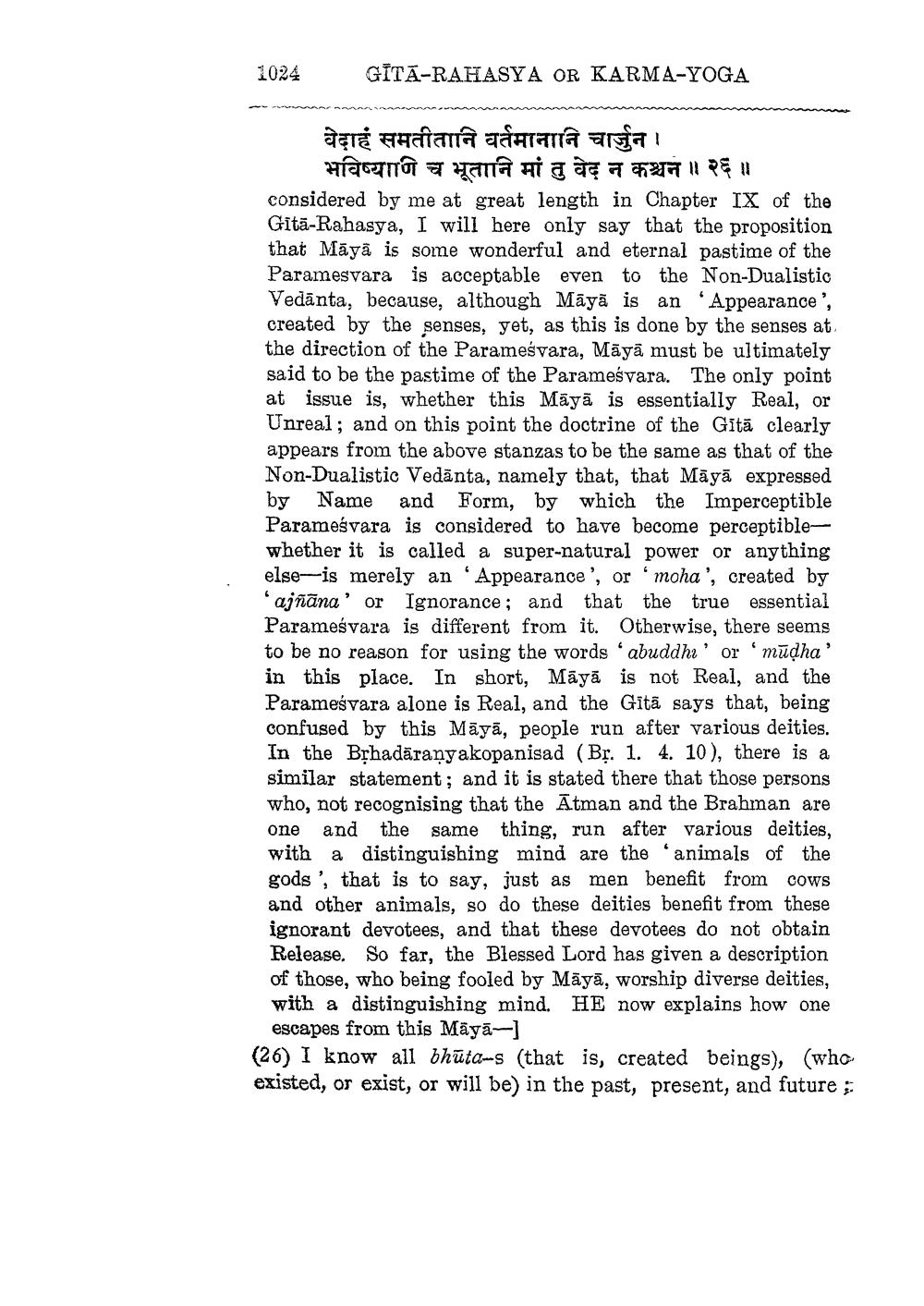________________
1024
GITA-RAHASYA OR KARMA-YOGA
वेदाहं समतीतानि वर्तमानानि चार्जुन । भविष्याणि च भूतानि मां तु वे न कश्चन ॥ २६ ॥
considered by me at great length in Chapter IX of the Gita-Rahasya, I will here only say that the proposition that Maya is some wonderful and eternal pastime of the Paramesvara is acceptable even to the Non-Dualistic Vedanta, because, although Māyā is an Appearance', created by the senses, yet, as this is done by the senses at. the direction of the Paramesvara, Māyā must be ultimately said to be the pastime of the Paramesvara. The only point at issue is, whether this Mays is essentially Real, or Unreal; and on this point the doctrine of the Gitä clearly appears from the above stanzas to be the same as that of the Non-Dualistic Vedanta, namely that, that Mãyã expressed by Name and Form, by which the Imperceptible Paramesvara is considered to have become perceptiblewhether it is called a super-natural power or anything else is merely an Appearance', or 'moha', created by ajñana or Ignorance; and that the that the true essential Paramesvara is different from it. Otherwise, there seems to be no reason for using the words 'abuddha' or 'mudha' in this place. In short, Maya is not Real, and the Paramesvara alone is Real, and the Gita says that, being confused by this Maya, people run after various deities. In the Bṛhadaraṇyakopanisad (Br. 1. 4. 10), there is a similar statement; and it is stated there that those persons who, not recognising that the Atman and the Brahman are one and the the same thing, run after various deities, with a distinguishing mind are the animals of the gods', that is to say, just as men benefit from cows and other animals, so do these deities benefit from these ignorant devotees, and that these devotees do not obtain Release. So far, the Blessed Lord has given a description of those, who being fooled by Maya, worship diverse deities, with a distinguishing mind. HE now explains how one escapes from this Māyā-]
(26) I know all bhūta-s (that is, created beings), (who existed, or exist, or will be) in the past, present, and future;




